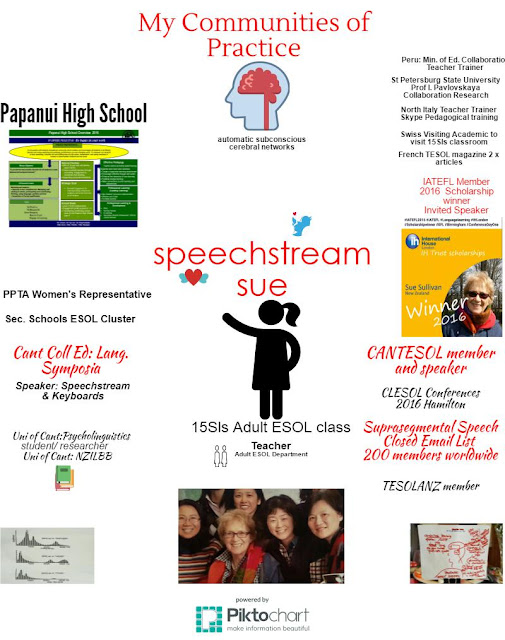Mind Lab Week 29. Activity 5: Legal and ethical contexts in my digital practice.
https://www.ted.com/talks/damon_horowitz?language=en
So all over our profession there are codes and rules and ethical documents. My school has a handbook for parents who want to be on the school Board or understand it. The school has a charter which also outlines its responsibilities. And secondary school teachers have a strong union that is vigilant in overseeing conditions and legal obligations of employees are met.
You'd think with all this documentation that all our schools would run smoothly. But legal challenges and upsets in the system appear not infrequently enough in our media. Why is it all so hard?
Well, we are individuals. And each brings their own set of values to the workplace. It is up to us personally to find the pathway that does not jar against our own values, while fulfilling the rules and needs our workplace brings. In The Teaching Code Alan Newland talks about the need to 'merge' our personal values with professional code. But that's inappropriate I think. In places my values may clash with my professions. I don't mix them together but go about the difficult task of - yes, thinking - and probably gaining collegial wisdom and advice around whatever the question is.
My personal values are enlightened by the principle of The Common Good which has been the touchstone of Catholic decision making for centuries. And it may be a touchstone for dilemmas ahead.

Because underneath the demands of everyday life we can feel things moving beneath our feet. There are ethical questions coming that we have never had to consider before. And they may be more powerful and demanding than anything we have yet faced.
First the ubiquitous algorithms trawled from facebook and the like. Will they destroy our privacy? Our actions be predicted? Our character described to future employers in detail? How can we make the decisions of privacy versus right to know? How can we summon and empower sets of principles that might have our own basest instincts mitigating against them - curiosity, gossip, and the like.
And where are ethics when our own government installs a Teachers Council on which not a single teacher sits as voice for the profession? In The Significance of ethics and ethics education in Daily Life, Michael Burroughs reiterates the age-old question - what are my principles? what are my values? While Aristotle's conclusion was to use the best judgement we can in the here and now circumstances, I predict that scenarios of the future will be so out of the range of our experience that we may have little in the way of wisdom to draw on, nor knowledge of long term consequences. Commit your preschooler to robot care? Or your elderly parent? Legislate against facebook? Hold out for personal privacy?
What about the ethical, social dilemmas that face us right now: Are the whistle-blowers heroes? Or criminals? If we the general populace have so greatly benefited from the exposure of material governments kept hidden, how do we move against those same governments when they imprison our liberators?
Damon Horowitz began his ted
talk, “We have a lot of data, and we have a lot of power”. Such power brings
novel dangers and moral quandaries. Our digital existence may begin to explode
with issues that demand informed ethical judgments about privacy, national security, personal abuse and economic challenges for example. Are we ready for it? How will
we go about it? One thing seems sure to me – the solutions will have to be collaborative
ones. And some of the most highly paid professionals, as we seek to find our
way through the moral, social and ethical new ground ahead of us, may no longer
be the techies and moneymakers, but the philosophers. In order steer a path
true to our highest selves, the philosophers, the pray-ers and the poets may be
our new-order guides in the digital universe.
References
Burroughs, M. D. (2016) The Significance of Ethics and Ethics Education in Daily Life. Retrieved from
https://www.youtube.com/watch?v=_8juebyo_Z4
Collste, G. (2012). Applied and Professional Ethics KEMANUSIAAN
Vol. 19, No.1,17–33(2012).
Horowitz, D. (2011). We need a “moral operating system”. Retrieved
from (2013) https://www.youtube.com/watch?v=1aVGf4G72IA
Newland, A. Teaching - what are its values, ethics and
codes? Retrieved from https://www.youtube.com/watch?v=GFfktwrjJGE
Stoll, L. (1998). Department of Education,
University of Bath Reprinted from School Improvement Network’s Bulletin, No. 9,
Autumn 1998 Institute of Education, University of London
The Education Council Code of Ethics for Certificated Teachers: Retrieved from https://educationcouncil.org.nz/content/ethical-decisions











